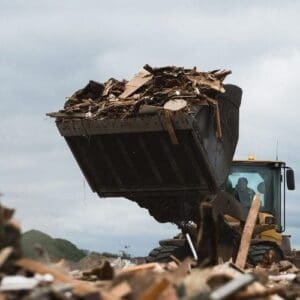The UK is focusing more and more on sustainability. We are moving away from our reliance on landfill and trying to reduce waste. Businesses are beginning to see the waste that they produce is slowly costing them more and more money. In a recent blog, we focussed on some of the key reasons why your business should be recycling and in this one, we’re looking at the tactics you can employ to make it happen and reduce your landfill waste.
If our previous blog didn’t convince you, then what about this: WRAP, a government-backed programme which helps businesses with their waste reduction, estimates that you could save up to £1,000 per employee. Those are some serious savings for any business.
Audit
The first step to reducing the amount of waste produced by your business is to audit your business. Take an incredibly scrutinising look at your business premises and view every piece of waste as money. There’s no difference between your waste costing your business money, and just simply throwing away money. How many things would you pick out of the bin and recycle, or simply stop purchasing because of the amount of waste it produces when you start picturing it as money?
Take a look around your business with a discerning eye and begin to see how you can cut down on waste. Some areas where you can cut back are simple: unnecessary printing, clear and plentiful recycling bins, and electronics recycling, for instance. Other methods of cutting back on costly waste can be less obvious and might require in-depth research and employee discussion such as switching to buying products with less wasted packaging or re-working wasteful manufacturing processes.
Establish all of the waste that can be removed and eliminated from the business. However, also take note of how easy this waste is to eliminate and what kind of disruption this will have to the business.
Create a Plan & Implement
Once you’ve got a good idea of every bit of waste within your business that is costing money, it’s important to put together a plan of action. The plan will take a look the waste audit and set out the priority in which waste sources should be tackled.
The priority of which you eliminate your waste should be a function of how much waste you eliminate vs how difficult it is to achieve. The aim is to achieve the most waste reductions for the lowest amount of effort and disturbance to everyday work. Small amounts of waste that can be eliminated with a day’s disruption to production is not as high priority as large quantities of waste that can be removed with only 5 minutes of lost productivity.
It’s also important to consider the value of the waste, or rather the cost of that waste. As an extreme example, it’s a higher priority to eliminate toxic nuclear waste than boxes of cardboard, as it will cost much more to dispose of.
Begin by organising the waste produced in your company by how it’s disposed and how much that costs to give you an idea of where the best savings can be made.
Some of the waste produced – if not most – might require a slightly more creative solution to eliminate it. Sometimes you can’t simply remove waste without impacting aspects of the business. You can’t remove waste cardboard by removing cardboard if you need it for packaging. However, taking a leaf out of Coca-Cola’s book, you could swap cardboard boxes for plastic, recyclable containers and save millions. Take some different employees and have a brainstorming session, you never know what kind of creative solution to a problem you might come up with.
Next, take a look at production methods and where resources are used. Do you use large amounts of water during manufacture? What do you do with it once it’s used? Water is used in the vast majority of manufacturing processes, but few actually use it to its full efficiency. Waste water which may not be re-used could be used in cooling systems.
Where might raw materials be lost or wasted due to manufacturing processes? What can be done to prevent it? Raw materials are naturally wasted throughout the working day but proper staff training can prevent it. Talk to employees and allow them to be honest about how you can improve the manufacturing efficiencies and reduce waste.
Businesses are all about efficiencies. Time is money and nowadays so is everything else. Take the time to find the efficiencies and protect your business.
